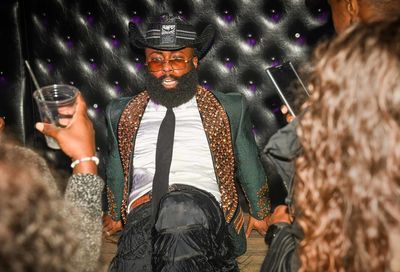Prop. 8's Fall Fallout
News Analysis: The timeline of the elections for governor and attorney general in California mean everything Â… or nothing Â… or something to the Proposition 8 appeal
On Friday, Aug. 20, California gubernatorial candidate Meg Whitman (R) told the Sacramento Bee that she would defend Proposition 8 in court if elected governor on Nov. 2. Her opponent, current California Attorney General Jerry Brown (D), refused to defend the amendment at the trial in Perry v. Schwarzenegger and said in court filings that he believed the amendment to be unconstitutional.
Now that U.S. District Court Judge Vaughn Walker has agreed, finding the amendment unconstitutional on Aug. 4, Brown unsurprisingly has said he will not defend the amendment should there be any appeal and wanted Walker’s ruling to go into effect immediately. Gov. Arnold Schwarzenegger (R), who also had not defended the law at trial but gave no opinion as to its constitutionality, opposed a stay of the decision, which Proposition 8 proponents had sought, unsuccessfully, from Walker.
When the proponents took their request for a stay to the U.S. Court of Appeals for the Ninth Circuit, Brown filed similar papers opposing the stay. And, though Schwarzenegger’s argument was a part of the record before the appellate court, his administration filed no further opposition to the stay.
Now that the Ninth Circuit has put a stay into effect and same-sex marriages are on hold in the state until the appellate court hears the case, the candidates took the opportunity to give their views on the case. Brown, obviously, has been a clear opponent of the law and would continue to oppose the law as governor.
Whitman, who has said she voted for Proposition 8, announced on Friday, Aug. 20, that she would enter the case because, more or less, the case should be heard. She said, as reported by the Sacramento Bee, ”The issue right now is, as I understand it, is ‘Will Proposition 8 have the appropriate support to actually make an appeal to the Circuit Court of Appeals?’
“And I think the governor, the attorney general today has to defend the Constitution and has to enable the judicial process to go along and has to enable an appeal to go through. So if I was governor, I would give that ruling standing to be able to appeal to the circuit court.”
Brown’s spokesman responded dismissively, telling the Bee, ”That’s a complicated legal question that someone who’s shown herself unfamiliar with government matters most of her life clearly has no grasp of.”
Although somewhat inarticulate, Whitman was referring to the question – raised by the plaintiffs when the proponents sought the stay of Walker’s ruling – about whether, if none of the state defendants appeal the ruling, the proponents have the authority to appeal it. This concept, called standing, refers to the fact that federal courts are only able to hear actual ”cases and controversies.”
The Aug. 20 remarks were Whitman’s first definitive statements about how she would address Proposition 8 if elected governor, but her fellow Republican nominee, attorney general candidate Steve Cooley, had already long said that he opposed Brown’s actions regarding the case and would defend Proposition 8, according to San Diego News Room. His Democratic opponent meanwhile, San Francisco District Attorney Kamala Harris, is on the other side of that fence, writing in an e-mail disseminated via Equality California’s mailing list, “I will never defend the anti-LGBT Proposition 8 in federal court.”
So, the Democrats support opposing Proposition 8 and the Republicans oppose opposing the measure. The question, then, is: Does it matter?
As the Courage Campaign’s Rick Jacobs pointed out to the Sacramento Bee, regarding the timing of the appellate hearing, which is set for the week of Dec. 6, “[Whitman] wouldn’t be governor yet. The appeals court will decide before there would be a change of governor and attorney general.”
Although the three-judge panel of the appeals court has no obligation to decide the case prior to Jan. 3, 2011 – when the new California governor and attorney general are to take office – Jacobs is at least right that the briefing and oral argument in the case are scheduled to have been done and the case will be considered submitted to the court for decision.
In fact, in what appears to be a coincidence of timing, the proponents’ reply – or final – brief in the case is due to be submitted to the court on Nov. 1, the day before Election Day. And the court’s short order detailing the schedule for the briefing noted specifically that the court’s rules allowing for an easy extension of that timeline would not apply for this expedited appeal.
The proponents, it seems likely, will note in their reply brief that the issue of standing raised by Whitman should not rest on the election of the next governor, and that they, in and of themselves, have standing. At the same time, if it looks like either Whitman or Cooley might win the next day’s election, look for the proponents to point out how unjust it would be for the case to be dismissed prior to Jan. 3 based only on that lack of standing.
And, should Whitman or Cooley actually win on Nov. 2, things get even less clear. They could, in January, attempt to reverse the position enunciated by Brown before the court in its argument opposing the stay (or whatever further materials it submits to the court). They could file amicus curiae, or friend of the court, briefs, which don’t require that they be a party to the case. Or, assuming no state defendant has filed an appeal in the case, a new Gov. Whitman or Attorney General Cooley could decide to seek to intervene to do so directly.
And, even should the court rule to dismiss the appeal prior to Jan. 3, there remains the issue of how Whitman or Cooley might approach further steps, such as an attempt by them or the proponents to have the full bench of the Ninth Circuit consider the matter, or a later appeal to the U.S. Supreme Court.
Moreover, regardless of what happens with Whitman or Cooley or the standing arguments of the proponents, Imperial County, Calif., is appealing Walker’s decision not to let the county intervene in the case. Granting Imperial County’s intervention in the case could give the Ninth Circuit an easy way to hear the case, avoiding both any standing question about the proponents and the state government morass.
Despite attempts to make it sound as if Whitman’s comments were irrelevant, uninformed or both, a Whitman or Cooley election victory could be just enough to throw an unexpected wrench into the case that – while not necessarily having an impact on the end result – could have a significant effect on how long it takes to get there.
Support Metro Weekly’s Journalism
These are challenging times for news organizations. And yet it’s crucial we stay active and provide vital resources and information to both our local readers and the world. So won’t you please take a moment and consider supporting Metro Weekly with a membership? For as little as $5 a month, you can help ensure Metro Weekly magazine and MetroWeekly.com remain free, viable resources as we provide the best, most diverse, culturally-resonant LGBTQ coverage in both the D.C. region and around the world. Memberships come with exclusive perks and discounts, your own personal digital delivery of each week’s magazine (and an archive), access to our Member's Lounge when it launches this fall, and exclusive members-only items like Metro Weekly Membership Mugs and Tote Bags! Check out all our membership levels here and please join us today!
























